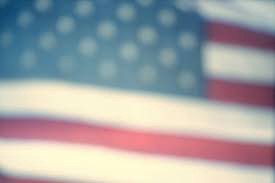written by Sonya Childress | published June 14th
The chasm between those who put credence in the American narrative of freedom and equality and those whose lived experiences prove the opposite to be true, is as old as this country’s founding. Despite increasing recognition of America’s long history of systemic oppression powerful forces are mounting a campaign to cement mythology into the historical books. As the battle over the national narrative spills into state houses, schools and even newsrooms, filmmakers may be called to the frontlines.
Legislators in more than a dozen states are currently advancing or passing bans on teaching Critical Race Theory in K-12 public schools. At the same time, conservative lawmakers, political donors and school trustees are aligning to exert pressure on state universities to extend the bans, censor, or deny tenure to professors teaching a narrative based on historical fact, as we see in the shocking case of journalist and MacArthur “genius” Fellow, Nikole Hannah-Jones.
This wave of censorship gained momentum last September with the release of Trump’s Executive Order on Combating Race and Sex Stereotyping which sought, in part, to limit frank discussions of systemic oppression in DEI trainings at federal agencies, and by federal grantees and contractors. Many of the current bans pull language directly from Trump’s Order, and weaponize them against those interested in a fact-based exploration of race, class and gender oppression in American history.
Trump’s Executive Order alluded to Critical Race Theory as an ideology “rooted in the pernicious and false belief that America is an irredeemably racist and sexist country; that some people, simply on account of their race or sex, are oppressors; and that racial and sexual identities are more important than our common status as human beings and Americans.” In fact, Critical Race Theory is not about bias and blame, but rather it serves as a framework to understand how racism and inequality are embedded into legal and social structures. Teaching it makes visible structures of inequity, paving the way for students of this history to dismantle those structures. Critical Race Theory has turned into the ideological bogeyman that deems any honest examination of our nation’s history as fear mongering and demagoguery.
The efforts to curtail educators’ ability to examine our nation’s unvarnished history and nurture critical thinking skills in American students should concern us all. But documentary filmmakers should be particularly alarmed. Millions of dollars of public and private funding over the past few decades have supported films that explore these concepts directly. These films have filled a growing appetite for social issue documentaries. Films which have made their way into classrooms, living rooms and movements.
This wave of conservative censorship may have a chilling effect on documentary filmmakers who explore justice issues in their contemporary or historical contexts. On a practical level, institutional acquisitions and individual classroom use of certain films may be blocked as schools respond to the legislation. Independent filmmakers who rely on revenue from educational distribution and college tours to recoup production costs may be the first to feel the pinch. In extreme cases, high school educators may risk losing their jobs if they integrate social issue documentaries into their classrooms.
Documentary film has always been a powerful vehicle to examine this country’s evolution with nuance and emotional resonance. Today’s documentary filmmakers capture social movements in real time, as with Ashley O’Shay’s Unapologetic, re-center the voices of those written out of American history, as with Renee Tajima-Pena’s Asian Americans, and urge us to face our country’s most painful episodes, as with Adam Mazo and Ben Pender-Cudlip’s Dawnland. When school curricula and journalism fails, documentary films provide a vital entry point to make meaning of our country’s evolution.
Legislation that prohibits the teaching of this nation’s history will not just silence educators, it too will gag filmmakers. Thankfully many advocacy organizations and professional associations, such as the National Council for Social Studies, are mounting resistance to these bills. And resourceful teachers will undoubtedly find creative ways to circumvent the bans. But what is at stake is too grave to leave to educators alone.
The story of this nation is told not just by its teachers, but by documentarians; chroniclers of the American experiment. And as filmmakers increasingly reflect the true demographics of the nation — thanks to unrelenting advocacy by filmmakers at the margins – these bans threaten to silence critical voices at a time when we need their lens the most.
This battle is not about an ideological agenda, it is about our ability to lay witness to our common experience. When truth-telling is suppressed the very work of documentary filmmaking is in jeopardy, and democracy along with it. Documentary filmmakers, flanked by educators and journalists, stand at the defense of a representative democracy that is predicated on an unvarnished accounting our present, and our past. To stand by as truth itself is attacked is to risk a slow descent into censorship, historical amnesia and autocratic rule.
But we don’t have to imagine what that reality might look like: there is a film about it.

